The “Duren Jing” is one of the ancient “Lingbao scriptures”. It originally had only one volume with about 6,000 words. Later, it evolved into 61 volumes with nearly 500,000 words. It is the first scripture of the “Orthodox Taoist Canon” of the Ming Dynasty. This true scripture is said to have been passed down by Ge Xuan, the founder of the Lingbao School during the Three Kingdoms period, but it is not recorded in Ge Hong’s “Baopuzi” and “Shenxian Zhuan”.
According to the “Zhen Gao” by Tao Hongjing of the Southern Dynasty, it is said that Ge Chaofu of the Eastern Jin Dynasty “created Lingbao”. Based on this, it is inferred that the “Duren Jing” probably came from the Eastern Jin Dynasty (that is, between 317 and 420 AD).
Lu Xiujing of the Southern Song Dynasty once established Taoist rituals based on this true scripture. Famous Taoist masters such as Li Shaowei and Cheng Xuanying in the Tang Dynasty, Xiao Yingsou and Chen Chunrong in the Song Dynasty, Chen Zhixu and Xue Jizhao in the Yuan Dynasty, and Zhang Yuchu in the Ming Dynasty wrote annotations or “Explanations” for the “Duren Jing”. Now, the “Four Notes on Yuanshi Wuliangduren Shangpin Miaojing” in the “Zhonghua Daozang” is the most authoritative annotated scripture, which was annotated by Yan Dong of the Southern Qi Dynasty, Xue Youqi of the Tang Dynasty, Li Shaowei, and Cheng Xuanying.
Song Zhenzong Zhao Heng wrote “Imperial Preface to Lingbao Durenjing”. Since the Northern Song Dynasty, Taoist priests have to take the “Durenjing” when they are appointed and promoted. Therefore, “Durenjing” is the main classic for Taoist priests.
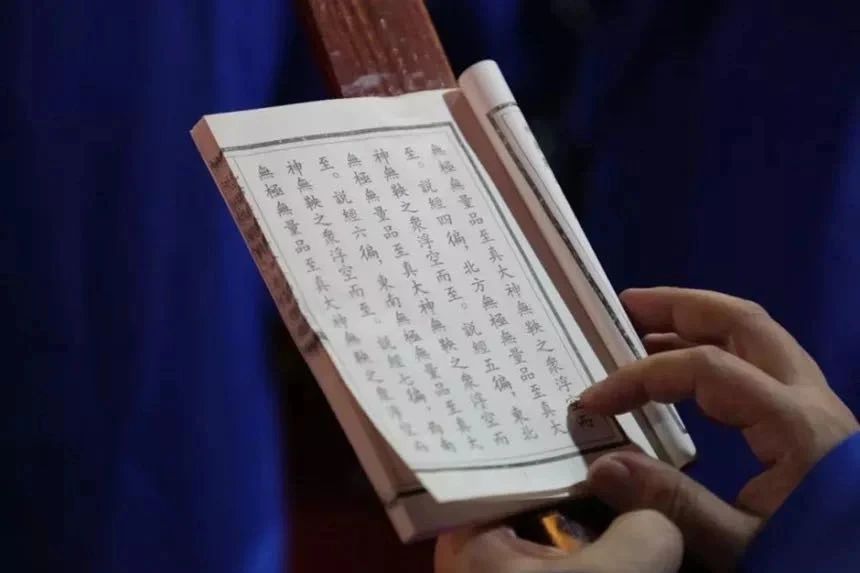
The content of “Durenjing” includes three aspects
The content of “Durenjing” is very rich, including the speech of Yuanshi Tianzun opening the catastrophe to save people and the rituals, fasting methods, talismans, cultivation, teachings, etc. This article points out a few main contents.
From the original text of “Durenjing”, it can be roughly divided into three parts. The first part is the speech of Yuanshi Tianzun opening the catastrophe to save people, which mainly explains the importance of this scripture and the magical effect of reciting this scripture.
The highlight is “All are saved and saved, and their original years are complete. There is no slander, and the whole land is worshipped. All are kind-hearted, do not kill or harm. Do not be jealous or treacherous, do not be lustful or steal. Do not be greedy or lustful, do not hate or hate. Do not speak fancy words, and do not speak evil words. Be kind and loving, and marry people of different races. The country is safe and the people are prosperous, and they are happy and peaceful.”
The second part is the main text, which is very rich in content. It not only includes Taoism’s understanding of the creation of heaven and earth, but also includes the principles of natural changes in the three realms and ten directions. The speech starts from “Five texts open up the world and breed gods and spirits”, explaining the unity of man and god. Then comes the names of the gods of the three realms and ten directions. From the scripture “the gods are secretive, the gods are nameless, the sky is empty, and the natural spirit chapters”, we can know that there are infinite mysteries hidden in it, but the central idea is “to spread the truth of the gods and save all the gods and people”, “the immortal way values life and saves people infinitely”.
Then, the “Miao Jing” explains the “three realms” in a more vivid way, namely the first desire realm, the second color realm, and the third colorless realm, and points out that “above these three realms, in the sky, the devil’s singing sound, the sound of the cave chapter”.
Finally, it explains the importance of chanting scriptures and practicing fasting. People who practice Taoism, chanting this scripture, “have great merits, eliminate natural disasters, protect the emperor, and repel poisons”. To save millions of people.
“Ecology” refers to the organic connection between life and its environment. Ecological ethics is people’s moral concepts, basic norms and moral practices on the relationship between life and ecological environment. Since the 20th century, with the widespread recognition of the environmental crisis by human beings, ecological awareness has suddenly stepped out of the professional circle and placed itself on the public stage. It has been entrusted with the important task of influencing human environmental practice and maintaining the global ecological balance, and has become a world-renowned discipline. Taoism is not ecology, but its ecological ethical spirit is irreplaceable by other doctrines and religions due to its unique characteristics. Otherwise, it would not have been possible to decline and revive, and it has been passed down to this day, with far-reaching influence. In terms of ethical cognition, Taoism is characterized by its emphasis on the joy, tranquility, tranquility, simplicity of life and the enrichment and expansion of the soul. It pays attention to the coordination between self and nature, is people-oriented, and has simple but profound content, broad but concise content, and is infinitely interesting; in ethical practice, Taoism is committed to practicing Taoism, keeping a low profile, being indifferent to fame and fortune, and seeking to make life last forever in the interaction of emotions, behaviors, nature, human relations and culture. Therefore, in its understanding of the relationship between natural ecology and human beings, it shows the conscious initiative to develop life vitality, the identity with natural objects, and the overall systematic nature of ethical cognition. In the words of Taoism, it is “the way of nature cannot be violated” and “follow the way of nature”. This nature refers to the nature of the essence of things, the nature of life, and the nature of society. To comprehend the essence of things, life, and society, and to seek the style, attitude, and atmosphere that life and nature should have, is the goal and spiritual pillar of Taoist ethics.
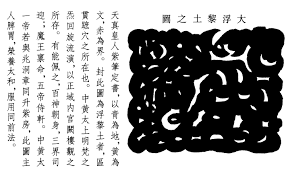
The Taoist ecological ethical spirit is reflected in its exquisite and profound content and the connotation that attracts the world, and is contained in the vitality that makes it continue and develop for a long time. Specifically, the Taoist ecological ethical spirit is mainly manifested in six aspects:
First, the spirit of unity of all things. The highest object of Taoism is “Tao”. The purpose of Taoism is to achieve immortality and become an immortal. The so-called Tao is to integrate with the Tao through cultivation. Therefore, Taoism is the religion that pays the most attention to real life among many religions in China. In its view, all things in the world are one, the existence of all things in nature has its rationality, and people are part of all things in heaven and earth. They should enjoy life, rebirth and avoid death, so that life can be continuously sublimated. Human beings should also respect the existence and personality of all things in nature with equal consciousness.
The early Taoist classic “Taiping Jing” proposed that “Heaven and earth are in harmony and coexist with all things” , believing that the ideal Taiping world is a world where people and natural things at all levels live in harmony and coexist and prosper together. In the Taoist thinker Ge Hong, the equality consciousness of the unity of all things is also very clear and rich. He believes that people can achieve the ideal of “longevity” and “physical immortality” through cultivation. This ideal is the state of being one with nature or one with all things.
Taoism also has the idea of ”life and Tao are one, and people are valued for life”. Laozi pointed out that Tao is the origin of the universe. Tao gives birth to one, one gives birth to two, two gives birth to three, and three gives birth to all things. Zhuangzi said: “Heaven and earth are born with me, and all things are one with me. Heaven and earth and all things are one with me.” This shows that Taoism pays attention to understanding and grasping human will from the height of the universe. The ecological ethical spirit of the unity of all things tells people to live in harmony with nature and create a harmonious and symbiotic ecological civilization society.
The second is the spirit of being born without possessing. Related to the spirit of the unity of all things, Taoism believes that the highest state and principle of life is the morality of producing all things without possessing all things. Taoism believes that the highest realm of human physical cultivation and spiritual perfection is “Tao”. How did “Tao” come into being? Ge Hong proposed: “Tao starts from one, and its value is that it has no partner. Each one occupies one place, which is like heaven, earth and man, so it is called three-in-one. Heaven is clear with one, earth is peaceful with one, man is alive with one, and gods are spiritual with one.” He also believed that this was an elaboration of Laozi’s wisdom. Laozi once pointed out that “man follows the earth, the earth follows the sky, the sky follows the Tao, and the Tao follows nature”, and the essence of nature is: “The dignity of Tao and the value of virtue are always natural without command. Therefore, Tao gives birth to it, virtue nurtures it, grows it, nourishes it, protects it, and covers it. It gives birth without possession, acts without reliance, and grows without dominating. This is called mysterious virtue.”
Therefore, only “Tao follows nature” is in line with the idea of morality. Noble morality lies in multiplying all things without claiming them as one’s own, helping all things without relying on one’s own merits, and guiding all things without dominating them. Sun Simiao, a Taoist scholar and medical scientist in the Tang Dynasty, was a practitioner of this spirit. His medical theory was based on the theory of the unity of heaven and man and the theory of life without possession. He said, “There are four seasons and five elements in heaven,” “There are four limbs and five internal organs in human beings,” “Yang uses its shape, Yin uses its essence, which is the same for heaven and man,” and “A good doctor guides with medicine and cures with acupuncture. A sage harmonizes with the highest virtue and assists with human affairs. Therefore, there are diseases that can be cured in the body and disasters that can be eliminated in heaven and earth.” Sun Simiao himself “studied a lot of techniques and talked about Zhengyi.” He was not only an expert in medicine, but also had a noble character. This spirit of life without possession in Taoism has considerable practicality and universal significance.
This practicality and universal significance puts forward the concept of the sustainable and balanced development of things in the world, and reveals that human beings must conform to nature, follow the laws of nature, do what they should do and not do what they should not do, so as to be handy and achieve results; if they forcefully demand, it will be counterproductive, destroy harmony, and fail to reach a high level.
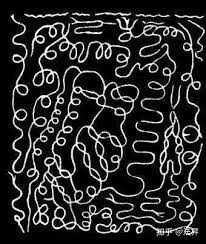
The third is the spirit of making all things perfect. Before Taoism, the Zhouyi Zhuan said: “The great man is in harmony with the virtue of heaven and earth, in harmony with the brightness of the sun and the moon, and in harmony with the order of the four seasons.” “After the harmony between heaven and earth, the way of heaven and earth is completed with wealth, and the harmony between heaven and earth is assisted.” This points out that the way of heaven and the way of earth are in opposition but coordinated, and the coordination is mediated by man. Laozi puts man in an important position: “Therefore, the way is great, the sky is great, the earth is great, and man is also great. There are four great things in the world, and man is one of them.” Since “man is also great”, man is not just dependent on nature and subject to nature, but must control the laws of nature. Because man must rely on nature to survive and must exchange materials with nature.
Taoism further proposes that man should think twice before acting, judge the situation, seek immortality and the way of Taoism without being reckless; if he goes against the way and “acts recklessly”, it will inevitably corrupt his mind and even harm mankind itself. Taoist practitioners believe that man and all things in the universe are mutually inductive, and the basis of induction is that man and all things have spirituality and man and things communicate information.
The universe is constantly evolving and reproducing. As a member of the cosmic community, human beings should aim to promote the harmony and perfection of the entire universe, rather than destroying the vitality of the universe by destroying various natural objects. Therefore, Taoism not only gives people a kind of ideological belief to settle down or focus on the perfection and compliance of doctrines and rules, and seeks solemnity and piety in sacrifices and prayers, but also concretizes beliefs or doctrines and rules into various Taoist skills and Taoist arts, and then forms an operating system to guide believers to practice. It can be said that Taoism is a religion that attaches importance to Taoism, art, and practice. It not only attaches importance to the promotion of “Tao”, but also actively promotes exercises and cultivation techniques.
The real Taoist’s grasp of the true meaning of Taoism lies in not only understanding its basic purpose or having its pious faith, but also practicing Taoist arts, striving to accumulate Taoist skills, making boundless progress, and constantly deepening and purifying faith. In this way, the subjective initiative of human activities and the adaptability of man and nature are fully emphasized. As the intermediary and coordinator between heaven and earth, people should not only conform to nature, but also restrict and guide natural changes to make all things perfect.
The fourth is the spirit of unity and diversity. The spirit of unity and diversity in Taoism is in line with the spirit of “harmony” in traditional ethics. The Taoist “Taiping Jing” proposed: “The one who is in harmony is the one who regulates all things”, and believed that all things at all levels of nature and human society contain the three basic elements of yin, yang, and harmony, which together constitute one thing, so it is called three names in one heart. “The original qi has three names: the sun, the moon, and the harmony. The body has three names: heaven, earth, and man. The sky has three names: the sun, the moon, and the stars, and the North Pole is the center.
The earth has three names: mountains, rivers, and flat land. People have three names: father, mother, and son. Governance has three names: monarch, minister, and people.” Three names in one heart is the ideal world of peace. The way of yin and yang reflects the will of heaven, so people should conform to the principles of yin and yang and maintain harmony between people and between people and nature in all aspects, so as to eliminate disasters and differences and strive for world peace. In order to achieve this goal, Taoism has developed the idea of harmony in its belief system, alchemy, talismans, and ritual norms. The ecological wisdom of unity and diversity helps people realize the significance of the existence of diversity in all things in the world. Protecting the diversity of things will make it possible to achieve sustainable development.
The fifth is the spirit of recycling and regeneration. In terms of how to effectively utilize nature, traditional Chinese people have established the goals of “great” and “long”, and believe that in order to achieve this goal, people must have the virtue of being upright, imitate heaven and earth, and use systems to restrain people’s endless desires, so as not to cause harm to nature and mankind. The Book of Changes points out two ways, one of which is “Nine Two Zhen Ji, with the middle.” The other is “The middle is right and the communication. The heaven and the earth are in harmony and the four seasons are formed. The world is controlled by harmony, without damaging wealth or harming the people.” Taoism has also developed similar ideas, emphasizing that the confirmation of life and the conditions for the existence of life is the wisdom, virtue, and career of the saints. The ideal life world of man is a beautiful society where things and I are one, and it is believed that in such a society, life can be circulated continuously, circulate without stopping, and be endless.
Early Taoism believed that the ancient immortals had wings on their bodies, could transform and fly, and were unique and different from the nature of ordinary people. They even transformed into different shapes, such as a sparrow turning into a clam or a pheasant turning into a clam. Later Taoism absorbed more ideas about human relations and daily life. From the perspective of the cycle of life, it regarded “not declining even when old, living a long life, and being able to come and go as one pleases” as the way of immortality. Tan Qiao, a Taoist scholar in the Five Dynasties period, viewed the universe, life and society from the perspective of “transformation” and proposed: “The void transforms into spirit, the spirit transforms into qi, qi transforms into form, form transforms into essence, essence transforms into gaze, and gaze transforms into courtesy…”
The prosperity of the entire life and society is in the process of change and unity. In terms of the concept of using materials, Taoism advocates that humans should restrain their desires as much as possible to maintain the vitality and development of all things. This is quite consistent with the traditional Chinese concept of logging in the mountains according to the season, prohibiting logging before summer, prohibiting the capture of young animals and birds, prohibiting the killing of fish and crabs, not exhausting the lake to fish, and not burning the forest to hunt. When people get along with biological resources, they need to exchange materials. Exchanging materials is not forceful possession, but conformity and adaptation to nature.
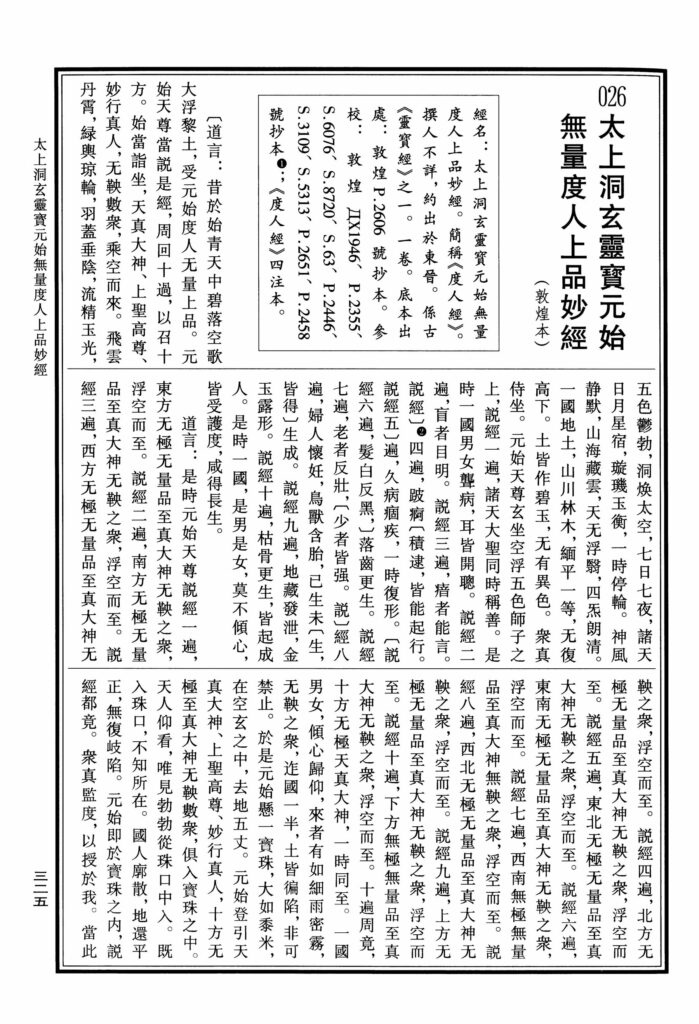
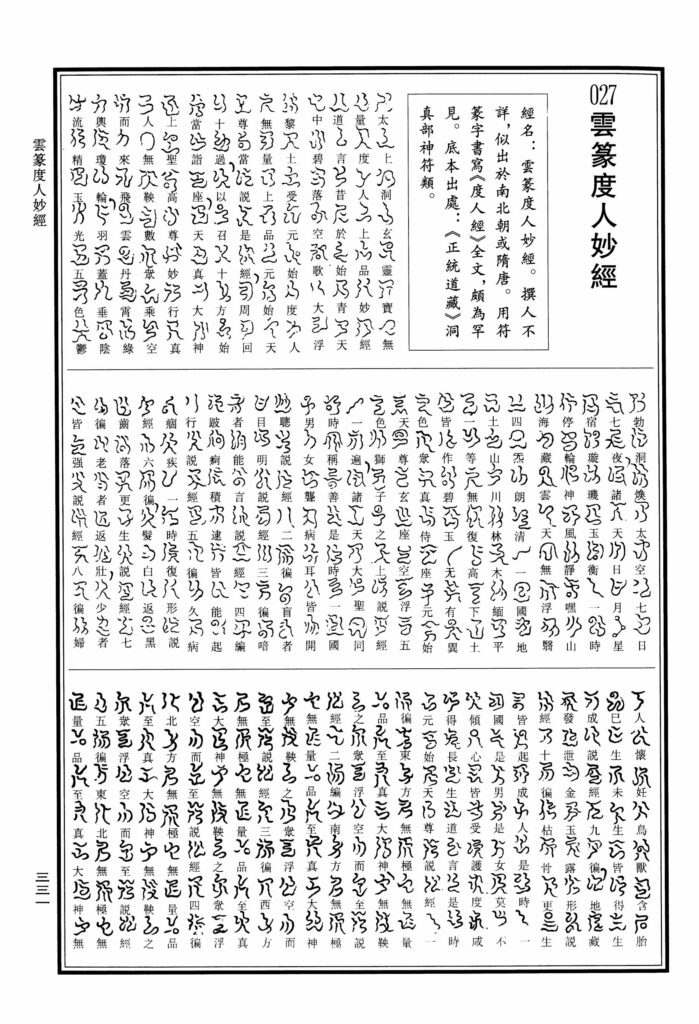
The sixth is the spirit of integration of all things. Taoist thought has always regarded nature as a super-huge system full of life, in which all things are organically connected to each other. The universe runs in its course, which is the intersection of time coordinates and space coordinates. From the beginning of Laozi and Zhuangzi, they explored its mystery to reveal the inherent overall relationship in nature. Laozi said: “The great way is universal and can be controlled. All things hold on to it and live without saying goodbye, and the work is completed without being named. Clothes and nourishes all things without being the master, always without desire can be named small. All things return to it without being the master, which can be named great. Because it does not regard itself as great in the end, it can achieve its greatness.”
In other words, the great way nourishes all things like a vast river, without selfishness or partiality, and cares for all life like a great mother, and all life depends on the nurturing of the Tao to survive. We should treat nature with kindness, because fundamentally “man and heaven are one.” In this case, we must protect the ecological environment. Zhuangzi said: “All things are species, and they are transformed in different forms. The beginning and the end are like a circle, and there is no comparison. This is called the balance of nature. The balance of nature is the same as the Universe of Nature.”
All things come from specific species, but there are also connections and transformations between species of different substances, just like a circle, with no beginning or end and no order. This natural connection can be called “the balance of nature.” Taoism believes that Tao is the origin of the world, the source of all life, and the driving force that integrates the creation of all things.
Wu Yun, a Taoist priest in the Tang Dynasty, said: “The way to give birth to all things is called Tao, and Tao has no name. The way to nurture and complete all things is called virtue, and virtue has no title. Let’s try to explain it: the heaven, earth, people, spirits, immortals, ghosts and gods, without Tao, they cannot be born, and without virtue, they cannot be complete. Those who are born do not know their beginning, and those who are complete do not know their end. No one can explore its origin by exploring its mysteries and searching for hidden things. It enters at the end of existence and exits at the beginning of non-existence. No one can trace its origin. This is called nature. Nature is the norm of morality and the framework of heaven and earth.”
Here, we base ourselves on the inherent principles of the material world and infer the significance of moral ontology to the material world, which contains the ecological ethical wisdom of giving birth to all things without shortage and evaluating things in a proper way. The Tao is the origin of the universe and the starting point for observing the world. When observing the human world from the perspective of the Tao, the world is one, all things are one, there is no distinction between things and me, there is no this or that. Although the forms of the world and all things are different, and although all things in the world have their own reasons, when it comes to the fundamentals, each follows its own feelings, each fulfills its own nature, each is natural, and each is at peace. This is the unity in the difference, the non-difference in the difference. When you realize the unity in the difference, the non-difference in the difference, you will also realize the Tao and integrate into the Tao.
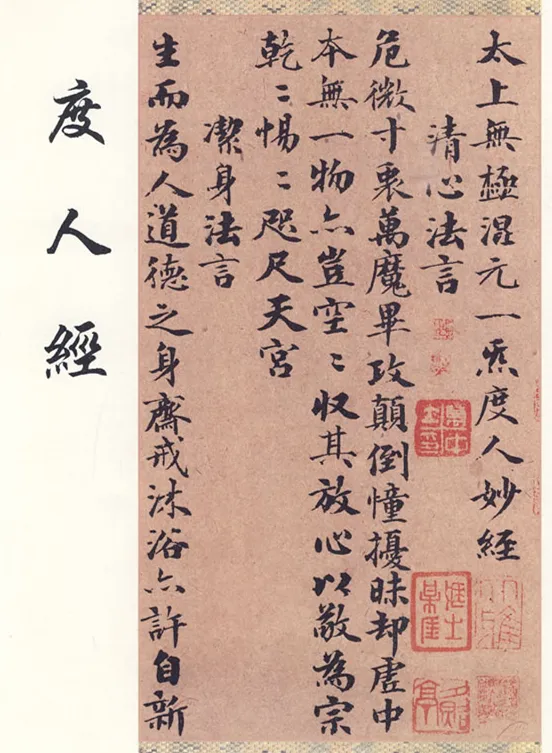
In short, the above aspects, when put into practice to maintain biological species and beautify the living environment, can contribute to maintaining ecological balance and achieving sustainable development. This means that Taoist ecological ethics must and can undergo a modern transformation. The opportunity for transformation lies in the shaping of a modern personality with a noble spiritual realm. Because according to the Taoist concept, the lofty realm that people reach through cultivation is not mysterious or unattainable, and the highest gods are also the embodiment of human creation and cultivation in the world.
Mr. Mou Zhongjian, an expert in the history of religion in my country, summarized the personality characteristics of Taoist gods into the following aspects: First, they have a strong vitality, so they can be healthy and long-lived; second, they have a high spiritual realm, get rid of the “small self” and achieve the “big self”, so the spirit can be immortal; third, they are extremely wise, have high insight and foresight, but are wise but foolish, and are humble; fourth, they benefit but do not harm, do things but do not fight, and have merits in the world; fifth, they are free and easy, open-minded and calm, good at resolving troubles, and always maintain a happy mood. If you can do these things, you can be called a living god. The so-called fairyland, in addition to happy people, is a beautiful and pleasant environment. Blue sky and white clouds, green mountains and clear waters, birds singing and flowers blooming, people living peacefully and happily, and enjoying themselves, this is the beautiful life like the Peach Blossom Spring on earth.
We believe that as long as people work hard to build and integrate the ethical spirit of Chinese Taoism, that all things are one, that life is not owned, that everything is formed by curves, that unity is different, that circulation is regenerated, and that everything is integrated, into the shaping of modern personality, and use it to promote our material and cultural construction, the fairyland on earth can appear before our eyes.
The third part talks about “The Great Brahma Hidden Words and Infinite Sounds in the Heavens”, which is very obscure. If you don’t read the “Four Notes” by Yan Dong, Xue Youqi, Li Shaowei, and Cheng Xuanying, most people can’t understand it at all. The “Great Brahma Hidden Words and Infinite Sounds” in this part will be discussed with you in the next section.
According to the notes of the “Taishang Dongxuan Lingbao Yuanshi Wuliang Duren Shangpin Miaojing” in the “Zhonghua Daozang”, there is another 61-volume version of the “Duren Jing” in the “Zhengtong Daozang” Dongzhen section. The first volume is the scripture, and the next 60 volumes are the Daoist practice.
Written and Translated by Daoist Liu Cheng Yong, German Daoist Association.
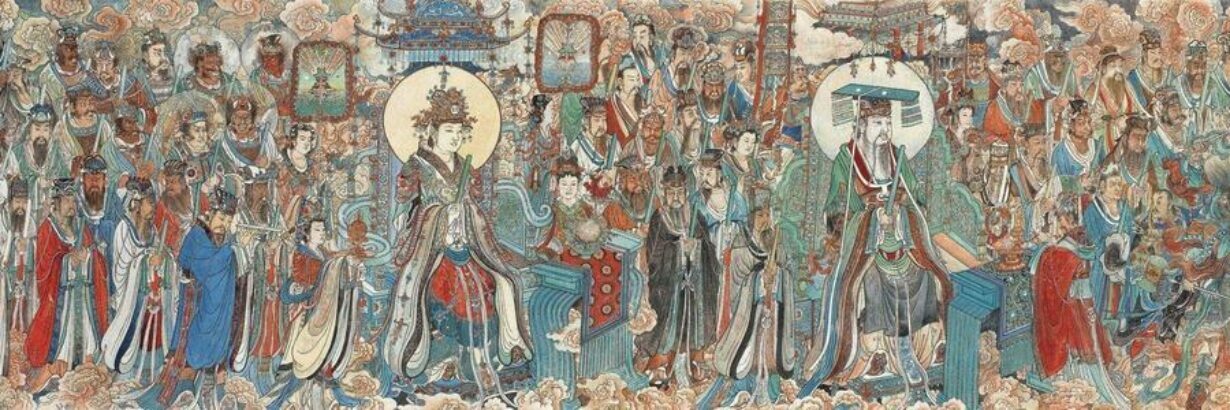
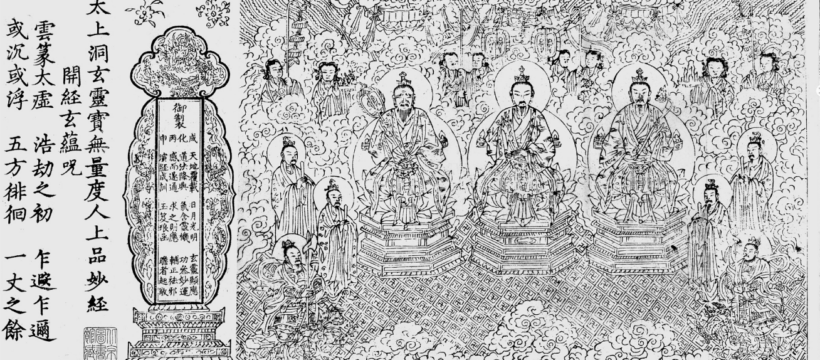
This is a wonderful introduction about Taoism and the Taoist scripture DuRenJing. It clearly states the difference between Taoism and other religions, that Taoism is the only religion focus on the harmony and respect of all nature and beings on earth, respect heaven and earth, and we are all connected.
Thank you … 🙏🏻
This is extremely insightful and I really love the part where Mr. Mou explains the characteristics of a living god and I believe I possess all those attributes
The thing about Tao is if one has not experienced it for oneself then the words will seem like magic or impossible.. but for one that has walked its path and experienced the words for themselves, then we just laugh as it’s a confirmation of our daily life